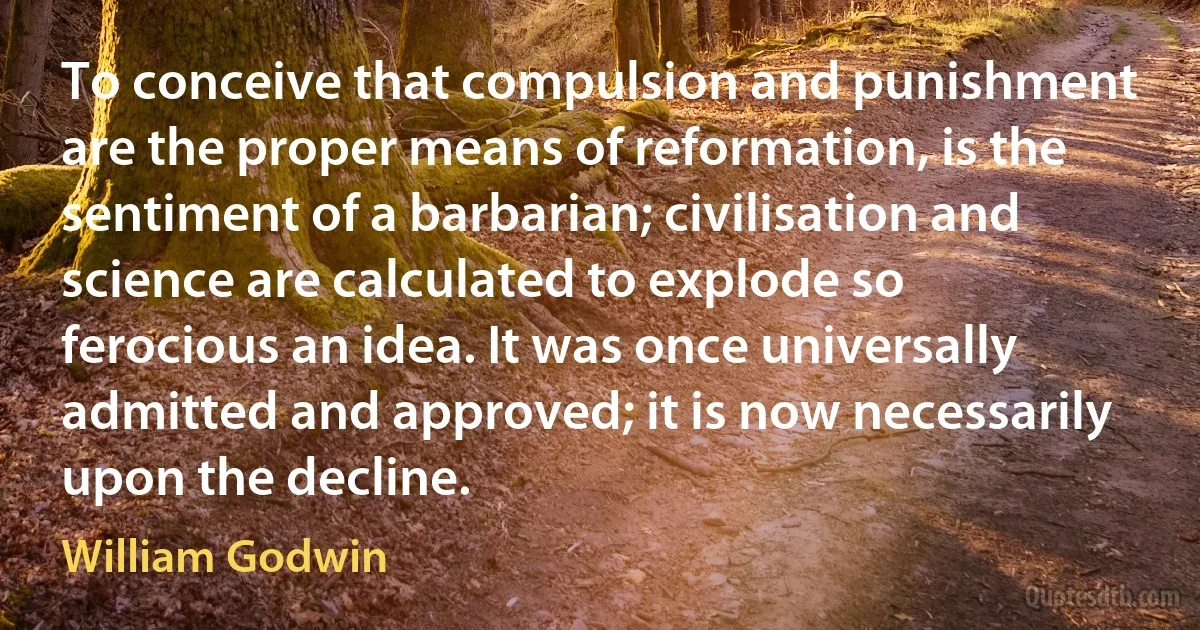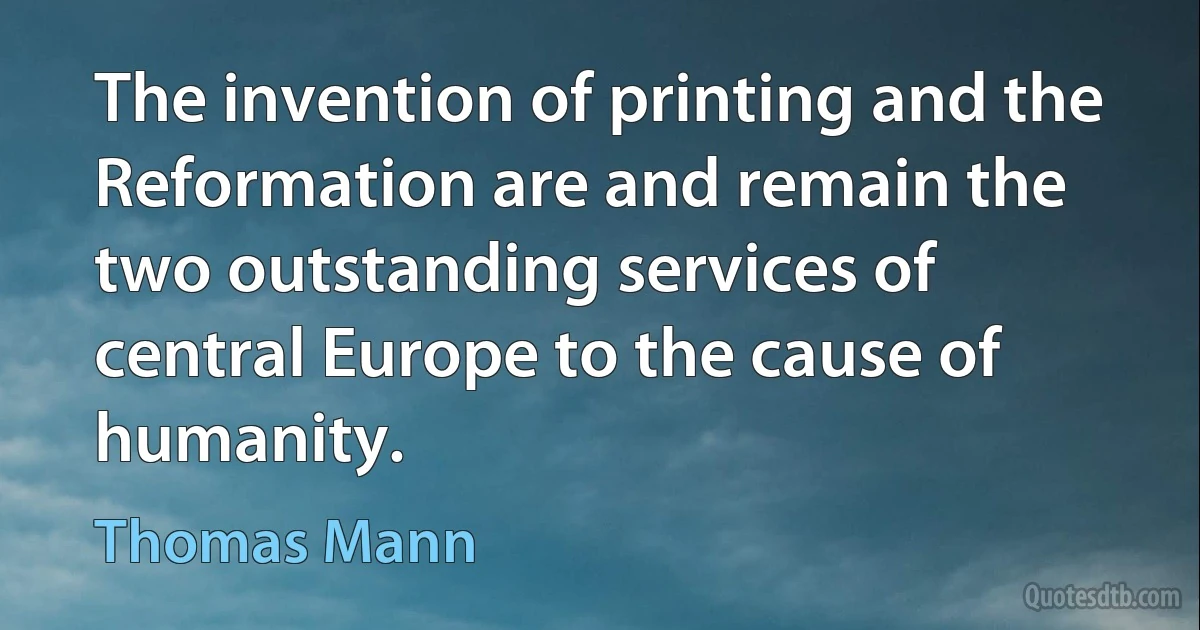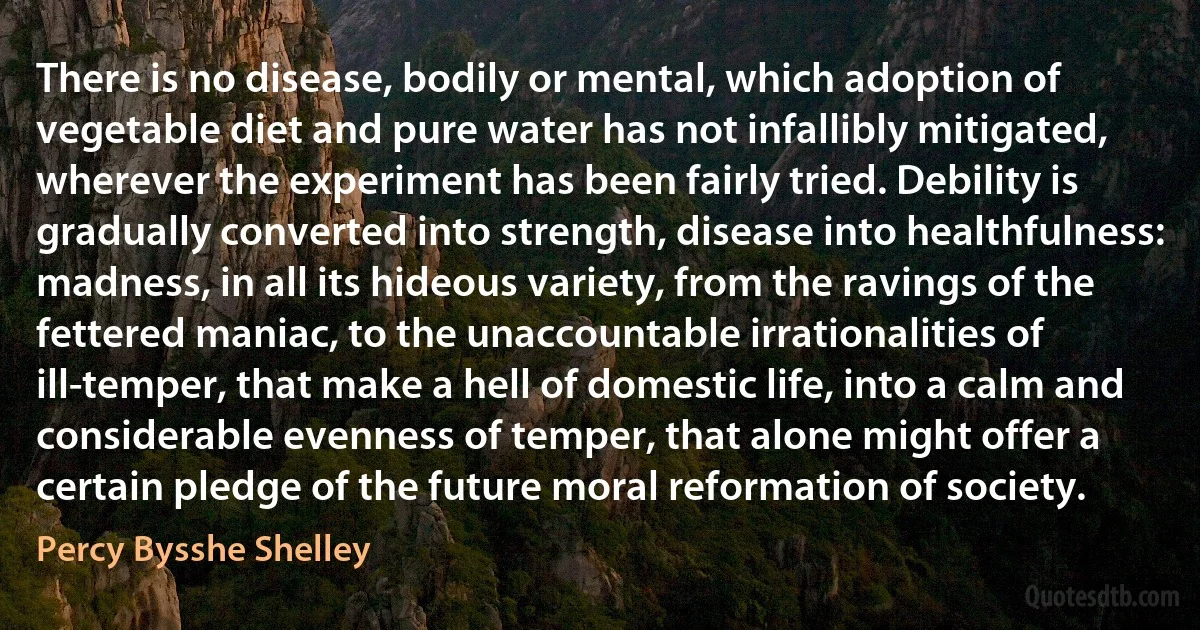Reformation Quotes - page 2
The philosophical thought of Kant, the supreme flower of the Germanic people, has its roots in the religious feeling of Luther, and it is not possible for Kantism, especially the practical part of it, to take root and bring forth flower and fruit in peoples who have not undergone the experience of the Reformation and who perhaps were incapable of experiencing it. Kantism is Protestant, and we Spaniards are fundamentally Catholic. And if Krause struck some roots here - more numerous and more permanent than is commonly supposed - it is because Krause has roots in pietism, and pietism, as Ritschl has demonstrated in his Geschichte des Pietismus, has specifically Catholic roots and may be described as the irruption, or rather the persistence of Catholic mysticism in the heart of Protestant rationalism. And this explains why not a few Catholic thinkers in Spain became followers of Krause.

Miguel de Unamuno
Once man loses his faculty of indifference he becomes a potential murderer; once he transforms his idea into a god the consequences are incalculable. We kill only in the name of a god or of his counterfeits: the excesses provoked by the goddess Reason, by the concept of nation, class, or race are akin to those of the Inquisition or of the Reformation.

Emil Cioran
Dostoevski said that taking a new step is what people fear the most. Any revolutionary change must be preceded by a passive, affirmative, non-challenging attitude toward change among the mass of our people. They must feel so frustrated, so defeated, so lost, so futureless in the prevailing system that they are willing to let go of the past and chance the future. This acceptance is the reformation essential to any revolution.

Saul Alinsky
The contrary, literalist campaign within Christianity is actually quite recent. It developed among more or less extreme Protestants after the Reformation – largely indeed in the last century in the US. It was consciously designed as a competitor with science, providing equal certainty by comparable methods. It is thus a political phenomenon, acting in some ways like a cargo cult. It has enabled relatively poor and powerless people to use their Bibles (which the Protestant Reformers had provided) to shape a rival myth of their own. They see this as an alternative to the materialist glorification of science and technology which they have perceived – with some reason – as the oppressive creed of those in power.

Mary Midgley
Islam never had its own version of the Reformation and the Enlightenment or a consequent acceptance of pluralism and the separation of church and state. Fortunately there are numerous Muslim leaders who think their faith needs to modernise from the kill-or-be-killed milieu of the Prophet Mohammed.

Tony Abbott
The rediscovery of Spinoza by the Germans contributed to the shaping of the cultural destinies of the German people for almost two hundred years. Just as at the time of the Reformation no other spiritual force was as potent in German life as the Bible, so during the eighteenth and nineteenth centuries no other intellectual force so dominated German life as Spinozism. Spinoza became the magnet to German steel. Except for Immanuel Kant and Herbart, Spinoza attracted every great intellectual figure in Germany during the last two centuries, from the greatest, Goethe, to the purest, Lessing.

Baruch Spinoza
For my own part, I may desire in general to be other than I am; I may condemn and dislike my whole form, and beg of Almighty God for an entire reformation, and that He will please to pardon my natural infirmity: but I ought not to call this repentance, methinks, no more than the being dissatisfied that I am not an angel or Cato. My actions are regular, and conformable to what I am and to my condition; I can do no better; and repentance does not properly touch things that are not in our power; sorrow does.. I imagine an infinite number of natures more elevated and regular than mine; and yet I do not for all that improve my faculties, no more than my arm or will grow more strong and vigorous for conceiving those of another to be so.

Michel de Montaigne
All those movements which took place in the fifteenth and sixteenth centuries and which had the Reformation as their main expression and result should be analyzed as a great crisis of the Western experience of subjectivity and a revolt against the kind of religious and moral power which gave form, during the Middle Ages, to this subjectivity. The need to take a direct part in spiritual life, in the work of salvation, in the truth which lies in the Book-all that was a struggle for a new subjectivity.

Michel Foucault
A great moral reformation will occur only as reformation takes place in the hearts, minds, and lives of each of us; as morality is reinstated as a priority in the homes of the country; and as men and women, boys and girls, realize that their lives are missing a critical moral component and determine to seek a life of virtue.

Gordon B. Hinckley
Poetry has this much, at least, in common with religion, that its standards were fixed long ago, by certain inspired writers, whose authority it is no longer lawful to call in question; and that many profess to be entirely devoted to it, who have no good works to produce in support of their pretensions. The catholic poetical church, too, has worked but few miracles since the first ages of its establishment; and has been more prolific, for a long time, of doctors than of saints: It has had its corruptions, and reformation also, and has given birth to an infinite variety of heresies and errors, the followers of which have hated and persecuted each other as cordially as other bigots.

Francis Jeffrey
"Reformation theology” ... pretends to prefer to Pharasaic ostentation a modest invisibility, which in practice means conformity to the world. When that happens, the hallmark of the Church becomes justitia civilis instead of extraordinary visibility. The very failure of the light to shine becomes the touchstone of our Christianity.

Dietrich Bonhoeffer
The university system in 2014, it's like the Catholic Church circa 1514... You have this priestly class of professors that doesn't do very much work; people are buying indulgences in the form of amassing enormous debt for the sort of the secular salvation that a diploma represents. And what I think is also similar to the 16th century is that the Reformation will come largely from the outside.

Peter Thiel
In a free society, the individual has the educational equipment, as well as the economic and political occasion, to cross the frontier between the activities that take the framework for granted and those that bring it into question. He has been educated in a way that enables the mind as imagination to become ascendant over the mind as machine. He has learned to philosophize by acting, in the sense that he recognizes in every project the seed of some great or small reformation.

Roberto Mangabeira Unger



